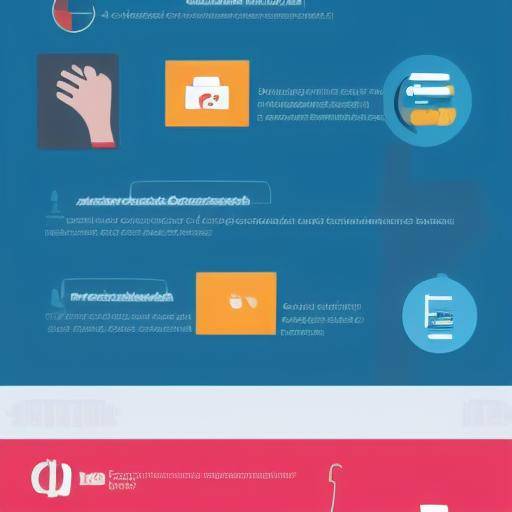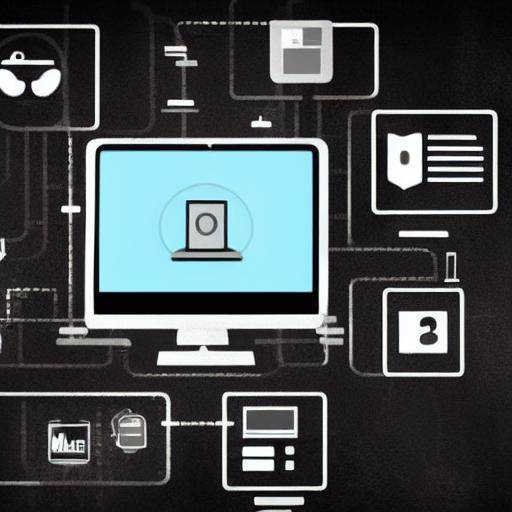
Introduction
In the current digital era, privacy in communication has become a major issue. The growing dependence on communication technology faces challenges related to the protection of our personal data and online security. In this article, we will explore in detail the importance of privacy in digital communication, analyzing its historical relevance, its current and future implications, as well as providing practical advice to maintain security in the digital world.
History and Background
The concern for privacy in communication has existed since the first days of humanity, but with the advent of the digital era, it has become more relevant than ever. The concept of privacy in digital communication has evolved significantly over time, from postal mail to social networks and instant messaging platforms.
The history of privacy in communication is marked by significant milestones, such as the enactment of privacy laws, the development of encryption techniques and the creation of online security protocols. The evolution of privacy in digital communication has been closely linked to technological advancement, with critical moments that have shaped the current picture of data protection and online security.
In the digital era, privacy in communication has become a central theme in the global agenda, with regulations and standards that seek to protect individual rights in an increasingly interconnected world.
Deep analysis
Digital communication has provided countless benefits, connecting people around the world instantly. However, it has brought significant challenges in terms of privacy and security. At present, the collection of personal data is a key concern for users, as their online activities can be tracked and used for various purposes, from targeted advertising to cybercrimes.
Social networks, messaging platforms and email services have been the focus of debates on privacy in digital communication. Scandals related to data filtration have revealed the importance of protecting personal information online. Despite advances in privacy regulations, the balance between data collection to improve user experience and privacy protection remains a challenge.
Comprehensive review
Protection of privacy in digital communication is a topic that covers a wide range of applications and practices. From end to end encryption in messaging applications to the use of virtual private networks (VPNs) to protect communications, there are numerous tools and approaches that users can adopt to protect their privacy online.
It is essential for organizations and individuals to understand the legal and ethical implications of privacy in digital communication, as well as to implement proactive measures to safeguard sensitive information. Challenges related to privacy and online security require a holistic approach that combines user awareness, clear policy implementation and the development of innovative technologies.
Comparative analysis
Privacy, digital communication and security are intrinsically intertwined, and understanding the intersection of these concepts is essential to addressing current challenges in the digital environment. As digital communication continues to transform the way we connect, there is a need to balance convenience with the protection of privacy and security.
Practical Tips and Accessible Tips
Ensuring privacy in digital communication is a shared responsibility among service providers, users and regulators. By adopting good practices, such as the use of strong passwords, regular software update and continuous online privacy education, users can strengthen their position in an increasingly complex digital environment.
Conclusion
In conclusion, privacy in digital communication is a subject of vital importance in the current world. As technology continues to evolve, it is crucial to maintain a balance between the convenience of digital communication and the protection of privacy and security. This comprehensive approach requires the collaboration of industries, regulators and users to ensure a safe and secure digital environment for all.
This article has provided a profound insight into the importance of privacy in digital communication, from its historical background to the current panorama of challenges and opportunities. By understanding the dynamic nature of privacy in digital communication, users can take proactive steps to protect their data and stay informed about trends and best practices in cybersecurity.
There is no doubt that privacy in digital communication will remain a central issue in the technological and social sphere, and it is essential to be prepared for future challenges and opportunities. By fostering an online security and privacy culture, we can forge a more secure and protected digital world for generations to come.
Thank you for accompanying us on this tour for the importance of privacy in digital communication!
Frequently asked questions
How to protect my privacy on social networks?
Protecting privacy on social networks is crucial in the digital era. By adjusting the privacy settings on social media platforms, limiting the personal information that is shared and being aware of the implications of online publications, users can protect their personal data on social networks.
What are the best practices to ensure the privacy of my emails?
To ensure the privacy of emails, it is recommended to use end-to-end encryption, safe passwords and the implementation of two-factor authentication when available. In addition, avoiding sharing confidential data in emails and keeping up-to-date email software are key practices.
To what extent do privacy regulations influence digital communication?
Privacy regulations play a crucial role in protecting personal data and online security. These regulations set standards for the collection, storage and use of data, which influences privacy practices in digital communication, protecting user rights and promoting transparency in the management of personal information.
How can I identify if a digital communication platform is secure?
To identify if a digital communication platform is secure, it is important to investigate the security measures it implements, such as extreme to extreme encryption, privacy policies and security notifications. In addition, reviewing the reputation of the platform and the views of cybersecurity experts can provide a clearer understanding of its level of security.
What role do companies play in protecting privacy in digital communication?
Companies play a crucial role in protecting privacy in digital communication by implementing robust security measures, training their staff on privacy issues and promoting a corporate culture that values data protection. By establishing clear privacy and security policies, companies can contribute significantly to the protection of personal information from their users and customers.
What are the main threats to privacy in digital communication?
The main threats to privacy in digital communication include identity theft, phishing, malware, intercepting communications and exposure of sensitive data. Being aware of these threats and taking preventive measures, such as the use of reliable security software and education on social engineering techniques, users can significantly reduce their online vulnerability.
These frequent questions address key issues related to the importance of privacy in digital communication, providing key information to understand and protect personal data in the evolving digital environment.







